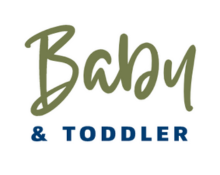
The amount of breast milk a baby needs can vary depending on their age, weight, growth rate, and individual needs. Here are some general guidelines to help you understand the approximate amount of breast milk your baby may need:
Newborns: In the first few days of life, newborns typically have small stomachs and require frequent feedings. On average, a newborn may consume about 1 to 2 ounces (30-60 milliliters) of breast milk per feeding. However, it’s important to feed your baby on demand and watch for hunger cues rather than focusing solely on a specific amount.
Early infancy (1-3 months): As your baby grows, their stomach capacity increases, and they will likely consume larger volumes of breast milk. During this period, babies may take around 2 to 4 ounces (60-120 milliliters) per feeding, with feedings occurring every 2 to 3 hours.
Mid-infancy (4-6 months): By 4 to 6 months of age, babies may consume about 4 to 6 ounces (120-180 milliliters) of breast milk per feeding. They may also start to show interest in complementary solid foods as they begin their journey into solid feeding.
Later infancy (7-12 months): As your baby continues to grow, their breast milk intake may remain relatively stable or slightly decrease as they start incorporating more solid foods into their diet. Breast milk will continue to provide important nutrients and immune factors, even as solid foods become a larger part of their diet.
It’s important to note that these are rough estimates, and babies’ individual needs can vary. Some babies may need more or less milk depending on their growth, appetite, and overall health. The best way to ensure your baby is getting enough milk is to watch for signs of adequate intake, such as regular weight gain, wet diapers (around 6 or more per day), and contentment after feedings.
It’s also important to breastfeed on demand and let your baby guide the frequency and duration of feedings. This helps establish a healthy milk supply and ensures that your baby receives the appropriate amount of breast milk to support their growth and development.
